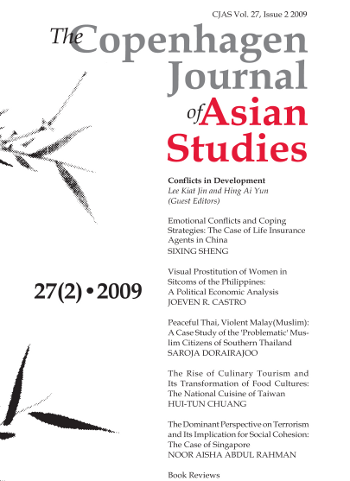Peaceful Thai, Violent Malay(-Muslim): A Case Study of the “Problematic” Muslim citizens of Southern Thailand
DOI:
https://doi.org/10.22439/cjas.v27i2.2544Keywords:
Violence, southern Thai Malay-Muslims, human rights, ethnic/national identities, Thai-ChineseAbstract
This paper tries to understand why the Malay-speaking Muslims of southern Thailand are viewed perpetual national security threats by looking at some deep-seated identity constructions that aligns Malay identity with violence and Thai identity with peace and patriotism. By insisting that southern Thai Malay-Muslims identify as Thai rather than as Malay, the Thai state and its Buddhist citizens view Malay-Muslims insistence on their Malay identity as not only a rejection of Thai-ness but also as a threat to the sovereignty of the Thai nation-state. By comparing the Thai-Malays with the Thai-Chinese, the most discriminated minority in the history of Thailand, the author argues that forging of economic links within and outside of Thailand has helped the Thai-Chinese attain both political and economic success in Thailand while the promotion of separatist identities such as Malay and Islam have bequeathed the Thai-Malays with a legacy of violence.Downloads
Published
2009-09-17
Issue
Section
Articles


